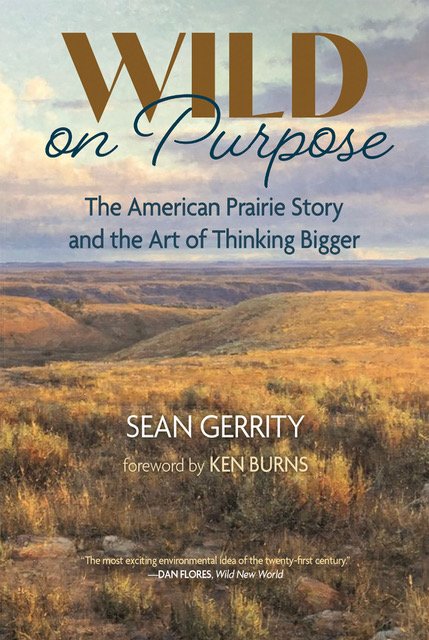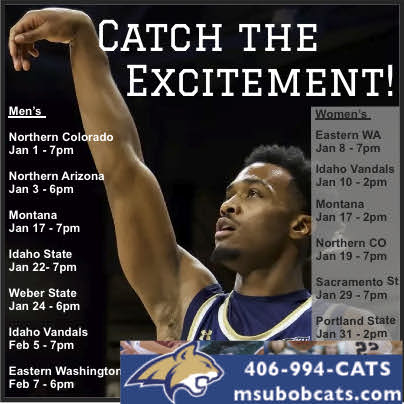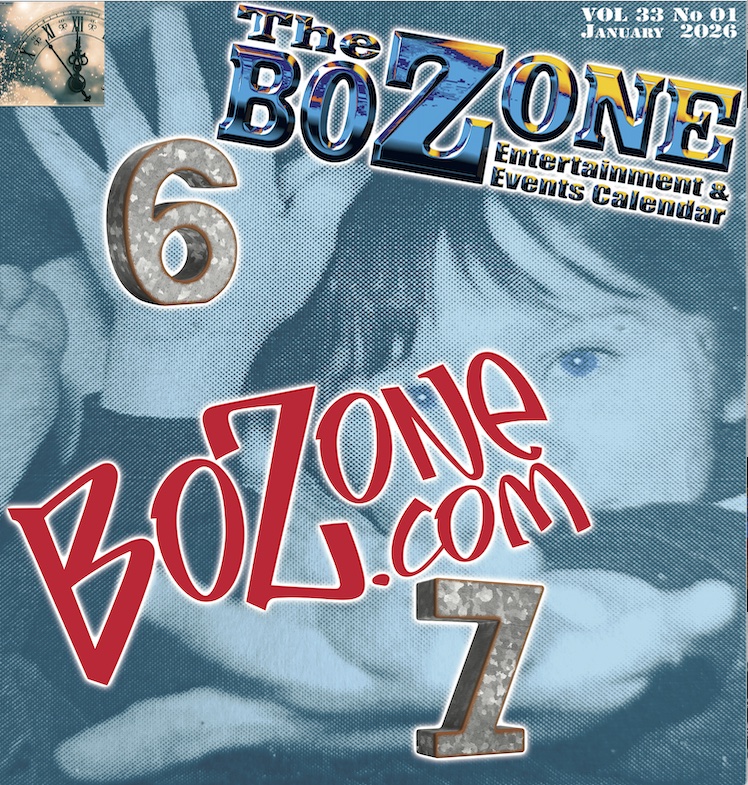Soulful music industry veteran utilizes universal language to unite, inspire
The artist whose sound is elevated by what Rolling Stone calls a “soul marinated voice” comes through Bozeman for what will surely be an excellent night of friends, family, and contagious live music.
A native of Syracuse, New York, and the tenth of 12 children, Martin Sexton grew up in the ’80s. Uninterested in the music of the day, he fueled his dreams with the timeless sounds of classic rock ‘n’ roll. As he discovered the dusty old vinyl left in the basement by one of his big brothers, his musical fire was lit. Sexton eventually migrated to Boston, where he began to build a following singing on the streets of Harvard Square, gradually working his way through the scene. His 1992 collection of self-produced demo recordings, In the Journey, was recorded on an old 8-track in a friend’s attic. He managed to sell 20,000 copies out of his guitar case.
From 1996 to 2002, Sexton released Black Sheep, The American, Wonder Bar and Live Wide Open. The activity and worldwide touring behind these records laid the foundation for the career he enjoys today with an uncommonly loyal fan base. Sexton sells out venues from New York’s Nokia Theatre to L.A.’s House of Blues, and tours regularly across Canada and Europe.
Happily and fiercely independent, Martin Sexton launched his own label, KTR, in 2002. Since then he has infiltrated many musical worlds, performing at concerts ranging from pop (collaborating with John Mayer) to the Jam scene to classic rock (collaborating with Peter Frampton), from the Newport Folk Fest to Bonnaroo to New Orleans Jazz Fest to a performance at Carnegie Hall.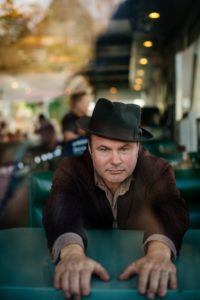
Regardless of his reputation as a musician’s musician, Sexton can’t keep Hollywood away. His songs can be heard in many feature films and television including NBC’s Scrubs, Parenthood and Showtime’s hit series Brotherhood and Masters of Sex.
Stage, film, and television aside, when Sexton isn’t touring he often mixes entertainment with his sense of social responsibility, performing at benefits for Paul Newman’s Hole in the Wall Gang camp, the Children’s Tumor Foundation, Japan earthquake/tsunami relief (The John Lennon Tribute), and Hurricane Irene relief efforts in Vermont, to name some.
Critical praise runs rampant for Sexton. Billboard says he is “The real thing, people, a star with potential to permanently affect the musical landscape and keep us entertained for years to come.”
The New York Times adds, “[Sexton] jumps beyond standard fare on the strength of his voice, a blue-eyed soul man’s supple instrument. His unpretentious heartiness helps him focus on every soul singer’s goal: to amplify the sound of the ordinary heart.”
Though busy on tour, Sexton was able to give The Rolling Zone a call to talk Mixtape, a life on the road, and fulfilling his purpose as a musician and as a human being.
RZ: Hey Martin. Thanks for taking the time to talk with me. Where am I catching you today?
MS: I’m in the Redwood Forest of Northern California at the California-Oregon line, surrounded by elk and giant sequoias. It’s just outrageous, spectacular beauty.
RZ: Very nice. Looks like you’re in the Pacific Northwest for your next batch of shows. How’s the tour going so far?
MS: It’s going beautifully. Meeting a lot of wonderful people, seeing amazing places—from crossing the Great Plains, into the High Desert and the West Coast, up to the Northwest. It’s really one of the reasons why I love my job so much.
RZ: It’s fitting you’re touring in support of your latest, Mixtape of the Open Road, which is described as a “musical cross-country trip.” Tell us a little about this album and what inspired you to create it.
MS: I wanted to make a record that was like a mixtape your friend made for you after you graduated, or had your heart broken, or [for a trip] across the country, what have you. I’ve benefited from mixtapes in the past, and so I did just that. I made twelve tunes that are all different from one another. Songs of different ilks, from different schools. [Then] kind of strung it all together with my singing.
RZ: Every track on the album feels a little bit different, but continuous.
MS: Dig it. It’s not too dissimilar from other records of mine, because I tend to make records that way. I’ve always done that, they’ve always ranged a lot. This one just ranges that much more.
RZ: What are a few of your favorite selections to perform, whether those be from this album or any other in your catalogue?
MS: It’s funny, it’s a family thing. The two that’ve come up most in my shows off Mixtape have been the one for my son called “Set In Stone,” and the one for my mom, which is “Virginia.” Those are the two I play most [during] my shows out here on the road.
RZ: Sharing a piece of you with the people at your shows.
MS: Yeah.
RZ: Speaking of performing, what can Bozemanites, who maybe haven’t been to one of your shows, expect from a Martin Sexton performance?
MS: Generally when people see me for the first time, the comment I usually hear is [that] people are surprised at all the sounds that happen in the show. That’s just from me. I make a lot of different sounds too. I’ll turn my guitar into a drum, or I’ll scat or whatever, but the audience becomes a choir at the shows. Their first time there, people kind of look around at everyone singing in harmony. It’s uplifting. People who are just seeing me for the first time are taken with a sense of unity, and harmony, and participation from the audience.
RZ: Kind of a family affair. Going back to the Mixtape album, how is this recording a representation of how your music has evolved since your beginnings in the early nineties?
MS: It’s representative [because] it’s just a continuation of what I’ve done all along, which is to try and write songs that are honest to who I am, and produce them in a way that’s also honest. Most of them are recorded live in the studio, [but] I use my backing vocals. I have many different voices I like to put on records—on one track you’ll have a cowboy trio and another track you’ll have a soul sister thing, or a chorus or a choir or a Motown trio even. But it’s always me, and I try not to overuse it. I try to use it sparingly enough for it to still be tasteful. I guess that’s what I’ve always done, and I hope I’ve evolved since the early nineties in doing that.
RZ: You mentioned the way in which you record live in the studio, but you’ve also released a few live albums recorded from previous shows. How does a live studio recording differ from a recording of a live performance?
MS: A performance live will just be me on stage, whether it be with a drummer, or a band, or solo. The records will have color added. The vocal you hear is the vocal that happened with the bass and the drum tracks, and whoever else was in the room that day. There’ll be things added like backing vocals or an additional percussion instrument. While the basics tracks are live—me singing, me playing—it’ll be more like a record than a live recording.
RZ: Do you think a song changes from when it is originally recorded to when it’s performed live, even years later?
MS: Sure, yeah. They evolve. You know, I ride this balance of keeping true to the original recording. I know fans like to hear songs they know and love. I do make [them] a little different during the performance, but I don’t stray or jazz it up too much. I’m the only person in that room who sings the song every night, so it’s easy for me to want to divert it and change the whole tune. I don’t want to go there, because the listener wants to recognize the song. So I ride that balance of being true to the melody and the original recording, but also being open to spontaneity every night, which is a beautiful thing.
RZ: Very much so. Can you give us a peek into your creative process? How does the journey of writing to recording to performing unfold for you?
MS: Generally, I’ll be somewhere, maybe my cabin in the woods. I’ll be sitting down with my guitar, maybe have a Dictaphone with me, and capture ideas on tape. I might finish it myself, or sometimes I’ll finish it with others. On the Mixtape record, I co-wrote everywhere from Worcester, Massachusetts, to Jackson Hole, Wyoming. It was cool. “Set In Stone” was recorded in the woods of the Adirondack Mountains. Half of it there, and half of it was written in Jackson Hole. Songs like “Do It Daily” were written in Worcester at a diner with my friend Ned Claflin. The harder part of my job is the writing. For me, it’s like chiseling a statue. It’s something that’s not there that you have to create, and it’s easy to suck really bad. You know what I mean?
RZ: Oh yes.
MS: The hard part is writing a song that doesn’t suck. I’ll start practicing it at home, singing it over and over [and] get comfortable with it, physically playing the chords and memorizing the lyrics. Then bring it out on the road to shows. If it doesn’t work live, then I don’t sing it live.
RZ: Kind of a trial and error process it seems. Are you working on any new material in between touring?
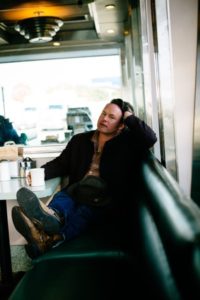 MS: For my next project, we’re going to release not a traditional album, but just songs. Maybe classic country covers. I’ve been doing the traditional twelve, thirteen song album for my whole career. We’re in a new era now where album sales are almost nonexistent. Luckily though, vinyl sales are good. People buy vinyl. And Mixtape was even out on cassette. We did it as a gag, but people buy them every night so It’s kind of funny.
MS: For my next project, we’re going to release not a traditional album, but just songs. Maybe classic country covers. I’ve been doing the traditional twelve, thirteen song album for my whole career. We’re in a new era now where album sales are almost nonexistent. Luckily though, vinyl sales are good. People buy vinyl. And Mixtape was even out on cassette. We did it as a gag, but people buy them every night so It’s kind of funny.
RZ: That is funny. I feel like some people are starting to miss how they used to get their music. Vinyl is popular around here as well.
MS: It’s the backlash of the digital age. We’re still humans, and we still want that tactile experience. Something to hold in our hands, and see and feel and touch, and smell, and read while we’re listening. And put a needle on that vinyl disk, have that analog experience. It’s just more personal, more deliberate. You have to make an effort. If you’re going to put an album on, you’re probably going to listen to it a little more than if you just turn on your iPhone and stream.
RZ: Absolutely. So what’s next up for you?
MS: Oh you know, more of the same I would think. Get this cover thing happening in the next year, and continue to travel North America and Europe. Keep loving what I do, being a dad, being an artist, being a husband, just being a human on this beautiful Earth.
RZ: That’s an awesome outlook.
MS: I made a mission statement two years ago, almost to the day, to bring unity through the power of music. So I’m on a mission to bring folks together. People at my shows are of all different walks of life. It’s a beautiful, beautiful experience seeing people, whether they’re rich or poor, gay or straight, black or white, left or right. They’re singing in harmony and leaving their differences at the door, recognizing how alike we all are and how much better we do when we’re brothers and sisters.
RZ: Totally. We need it more than ever, huh?
MS: We sure do, man. This is why I’m so honored to do what I do, to be the messenger of something so powerful. Music is such a motivating, unifying force.
RZ: Yes. We’re looking forward to seeing you in Bozeman!
MS: Great. Thanks for the support.
Martin Sexton will perform with a little help from special guests Brothers McCann on Friday, March 3rd at 8pm. Doors at 7:30pm. Tickets are $33 in advance at www.theellentheatre.com/ or $36.50 at the door. The Ellen box office is also open Wednesday–Saturday from 1–3pm. Call (406) 585-5885 for further ticketing information. Learn more about Martin Sexton and experience some of his music by visiting www.martinsexton.com/. •

